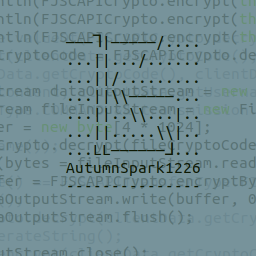when you’re the OS, they let you do it. you can do anything.
Grab 'em by the kernel.

When you know for sure a statement (or reality) makes it impossible for something to gain mass-market adoption
Thennnnn comes the general public
NSFW transcript of (the only) twice-impeached US president

https://www.nytimes.com/2016/10/08/us/donald-trump-tape-transcript.html
This was pretty informative and shocking.
And then Chris Titus made this video
They literally record everything you do, at least if it is a “Copilot plus” PC with a “neural engine”.
Here is an alternative Piped link(s):
Piped is a privacy-respecting open-source alternative frontend to YouTube.
I’m open-source; check me out at GitHub.
For people who say you should read the contract before agreeing to it. What about the hundreds of thousands? No, millions of people buying new windows laptops every year. Are they presented with any kind of agreement? I don’t think so.
Oh they are when they first set up Windows
The same is happening with some of these new “smart” vehicles. Built-in software in these vehicles are the anti-thesis of freedom and privacy.
It’s like using edge to download a better browser but with extra steps.
They are. It is a huge problem that companies are allowed to do clickwrap bullshit with no human-comprehensible summary. But people are agreeing to this stuff.
Maybe I’m missing something, but what is the damage in this screenshot?
High background resource usage.
Ah, the light blue between the 2 lines is background usage? I wouldn’t know, I use Arch btw :3
Thanks for asking. I’m using Debian and didn’t know either. :p
I too have used arch btw. Currently using pop (deb) tho. I hop around from time to time.
Distro slut! /s
Stop distro shaming.
how do you manage your system setup?
btw, moving from arch to pop is strange, you’re supposed to go Gentoo or NixOS or LFS…
Nix was my next plan lol. My last distro suddenly had some file system corruption problems mid week when I needed it, so I had to switch to something quick without much time for configuration. So I decided to go for a preconfigured distro.
My next plan is Nix when I have some time.
As for how I back stuff up for frequent distro hopping: Firefox login syncs my browser stuff and passwords, steam syncs my game save files, I backup my home folder to a USB once in a while so I don’t lose any local documents. I have private GitHub repos for some window manager, bar, etc configs I’ve made like sway, i3, polybar, awesomewm, etc., that I use when switching to more barebones distros.
Pretty funny how it says “Unauthorized access” right below screenshots of features clearly being enabled.
But in the end of the day, there is no intended way to turn off Telemetry fully.
Could airgap it, but then you’ve airgapped it…
or run windows in a VM
It knows it’s in a VM
Do you understand windows update is changing settings to defaults right? They are overriding user configured settings on this toggle. That is malware
I recall once setting up Windows 7 or 10, turned off everything in oobe, and every choice was ignored. Everything was enabled after finishing
nah i don’t care that you’re using windows who the fuck still uses eclipse
Eclipse is Free Software and as such it is valuable even if better commercial options exist.
Why not something else free? Geany, etc.?
I personally don’t use a full IDE, but KDE’s Kate.
I keep flip-flopping between Kate and pycharm community. I prefer Kate’s LSP access, but pycharm’s management of multiple projects is great.
I wish I could easily set up Kate so it would open random text documents in a separate session from my session that’s running a certain project. And I wish it were aware of whether a session is running on the same activity. (In fact what I’d really like is per-activity Kate sessions).
Trouble is, I’m not good enough at C++ to make a merge request for those features.
You guys are using graphical IDEs and text editors? I’ve been learning to program in neovim.
With 20+ years of using various Unix OS’s as my primary OS, I can say for sure that my answer to “vi or emacs?” is “neither.”
Tbh, it just fits my workflow better. I would find myself editing stuff in nano more so than something like vscode because navigation in a file browser gets a little clunky for me. So it seemed fitting to learn neovim. I find the features more of a nuisance than a benefit at this stage and I want to properly understand how to use the underlying technologies these programs extract away.
I typically know exactly what I’m looking for and if I need more help I could check something out like fuzzy find. Those search boxes on file browsers are hit and miss for me, especially with Dot files. I store my scripts in a folder called .scripts and I reference them alot while building my apps.
Actually most my apps start out as scripts because prototyping is easier when you don’t initially worry about UI or optimization and focus on the core functionality.
university students ?
To be fair, the access is authorized
Authorized without consent. That is what Louis Rossmann calls a rapist mentality.
I agree with that dude’s takes but he rubs me the wrong way.
Users explicitly and willingly click on “I agree” to the Terms and Conditions. It might be undesirable, but it is consented
Yes and no. While you are legally in the clear, in practice no one read those because of the huge amount of legalese.
True consent is only obtainable if the person consenting understands what it means. Or else it’s just legal consent.
“just legal consent”… I mean sure, but you know how stupid most people are, right? There is no way to get the type of consent you want from them for any slightly complex topic.
Your point of view makes sense. In my opinion though, when you agree without reading the terms, you’re basically saying “you’re allowed to do whatever you want”
You are consenting, not with this or that, but with anything regarding that product, probably because you trust the company, or you don’t care enough
This attitude is what props up billions of people’s privacy being invaded with zero recourse. No. Just no.
I think people here are misunderstanding reality evaluation with judgement of value.
Every time you sign up for something without understanding what it is exactly, they are setting themselves up for failure. This doesn’t mean that the company is right, or what they are doing is fair and just. Microsoft is clearly morally dubious, but they did technically get you agreement with it. The one who signed up is wrong, not in valuing privacy, but in expecting, even for a single moment, that a corporation would have their best interest in mind. They only have revenue growth in mind, and that’s bu the very nature of how their business is organized.
That’s why zero trust systems are important, and FOSS is a way of getting it. Being open source allows for anyone with enough technical knowledge to audit every part of the system, so you don’t need to trust a businessman
So what you’re hand waving away here is legalese and how no one can understand much of it even if they did read it. Absolutely no one reads every page of the 50 you’re required to sign when buying a house, for example.
But we have trust that society wouldn’t allow us to buy a house if people are hiding sneaky shit in the contractual language. Yes we have a few things like variable interest rates but no one is signing away their privacy rights in perpetuity in exchange for the chance to buy a home. We have a society that gives us certain expectations, and quite often those are met.
No, to use a computer we should not have to read 100 pages of documents and understand all of them. It’s impractical and that’s illustrated by the fact that billions of people so far haven’t read any of that shit.
You are right that we ought to be more careful signing stuff, but that’s a separate discussion imo. We shouldn’t even have the option legally of accidentally agreeing to such self sabotage
You do give consent. If you didn’t you wouldn’t be using Windows.
Say I buy a tomato. Tomato is sold to me as tomato, grown in a green house. It’s a good tomato.
I bring it home and I cut into it to make salsa and find a razor blade. I didn’t see any markings on the outside. I don’t know how it got there.
I go back to the store and say, “Dude, what the fuck is up with the razor blade?!”
They say, “Oh, we noticed a lot of people buying tomatoes to cut them so we decided to include a razor blade! You’re welcome!”
I say, “But I don’t want a razor blade. I just want the tomato!”
They say, “Oh…that’s too bad. We think you’ll really like the razer blade.”
I say, “I don’t care. I want a tomato without razor blades.”
They say, “ok. Just make sure you present this very specific, very distinct bar code to the check out person.”
I go and buy another tomato, present the barcode.
I bring it home and it has a different type of blade inside it.
I go back to the store and they say, “Well, you opted out of blade model a. This is blade model b.”
I consented to buy a tomato. Not to buy a razer blade.
I consented to install Windows OS, not fucking copilot, Cortana, Xbox central, etc.
I should have full control over my OS, regardless of who makes it. Even Ubuntu Linux had some sketchy adware that had to be removed (this was like Ubuntu 18 or something can’t remember).
True, I didn’t say it wasn’t a problem. I just said legally that’s how it works.
Most people are too tech illiterate to understand it all. I doubt people would agree to such a level of data collection, if they knew more about it. I believe it can be compared to making illiterate people sign a contract, when they can’t even read it.
Well they agreed to it. It isn’t a great reality but its the one we live in.
As if users understood anything related to their computer.
Yeah this reminds me of the time I argued with a guy who stood firmly by the opinion that because Facebook has terms of service that people agreed to, there was nothing wrong or unethical about Facebook business practices and everyone who used it deserved what they got
It a lot of ways that’s correct. However, I think the issue is the status quo
Yeah so you’re that guy. 👎
I don’t use Facebook or any other privacy invading service. My point was that part of the issue is people being lazy and not caring about the terrible things in the terms of service they totally bothered to read.
“Authorized” in the sense that even if I set all these options to No, a future Windows update will reset them and not tell me.
Authorized by not denying…
Why the damage?
From my experience Windows have this system program called “CompatTelRunner.exe” that run silently in the background maybe once a month it’s send data to M$ and using a lot of CPU power while collecting data, now with Al being pushed to windows who knows what it could be doing in the background without user knowledge
“Windows malware” increasingly sounds like pleonasm
“Windows malware” increasingly sounds like Linux users wanking each other
Your comment increasingly sounds like a bootlick
Your comment sounds like penguin preparing for Sunday dinner
If you guys have nothing to talk about but how you hate Windows, maybe you should find a hobby or something.
Lol alternative OSes are a hobby but most of us have several others too, obviously
Next time Gates slips his microremoved up your ass, remember that there’s no such requirement for using linux
you don’t have to browse linuxmemes
And Linux users don’t have to share their hate for Windows in all communities yet they do 🤷
90% of linuxmemes is people complaining about linux, lol. Which communities, specifically, are you seeing “linuxposting” in?
Yes.
I agree with the general sentiment but it literally says it will update outside of active hours. So as non-disruptive as possible.
And the privacy toggles are set when you install the OS. You can untick all of them the last time I checked.
Sorry for being such a pedant
but it literally says it will update outside of active hours.
Yeah, but it lies.
And the privacy toggles are set when you install the OS. You can untick all of them the last time I checked.
But a future Windows update will reset them without informing the user.
Microsoft respects user choice about as well as Republicans respect voting rights.
Has what you said been proven and documented anywhere? All I can find is threads of people claiming things, but no actual (investigative) journalism that covers these parts.
Toggling on data collection without informing the user would mean billions of dollars worth of fines in Europe, so I doubt that happens regularly. Still, I don’t mind being proven wrong if you got the proof to back it up
Toggling on data collection without informing the user would mean billions of dollars worth of fines in Europe, so I doubt that happens regularly.
More like a few thousand euros symbolic fine and an angry letter saying “don’t be an ass again pls our infrastructure depends on you” after years of blatant abuses and anti-consumer practices, followed by an ambiguous law (with positive effects affecting only european users) they will definitely not manage to circumvent withing the next week and a half. Not this time 🤡.
The problem here is the fact that most people just do not give a fuck about this; that’s why there’s no coverage in the (mainstream) media, why the only people who cares end up just leaving windows and why this kind of options are usually opt-out and they can actually afford to silently re-enable them cuz who’s gonna check anyways? Random people ranting on meme communities about my fancy malware?
You seem to forget what kind of fines the EU hands out. specifically against Microsoft in 2004 the EU fined then 500 million. And then another few 100 million.
Has it been proven to happen on Windows 11? Not that I can point to specifically. 11 hasn’t been in general use long enough to see a real pattern of behavior.
I was a mixed Windows and Linux user through the full life cycle of the Cortana implementation. The number of times they changed or moved Cortana related settings through the years was just ridiculous. It finally came down to having to manually change registry settings to keep it from scanning your files and messing with basic local search, and even if you did that you had to make sure the registry values were still set after version updates because they would get unset without warning.
I have no trust left for Microsoft, only suspicion.
Yeah, but it lies.
No it doesn’t, at least not if the update isn’t already a month overdue
But a future Windows update will reset them without informing the user.
I’ve done 3 years worth of updates in one day cause I needed too. Pretty much everything was reset including registry edits, but the privacy toggles were one of the few things that stayed persistent. Maybe it’s a EU special feature (wouldn’t be the first), but at least here they won’t change back silently.
Do they do that? I’ve had my laptop for a while, and it’s never happened to me.
My windows install enjoys rebooting itself unexpectedly a lot. There is no chance I ever checked a box that said “update then reboot my computer at some time in the future”
And this update outside active hours will have a good chance to “fix” your privacy settings again. Without you noticing. One basically needs a tool that confirms that your privacy settings are still active. And then wait how long it takes Microsoft to declare that tool as “malware”.
I find it hilarious that Linux users STILL continue to hate on Windows Update when memes like this exist.
In my experience, Linux wants to update itself far more frequently than Windows (which is really generally no more than once a month these days), and it DOESN’T EVEN OFFER THE OPTION of automatically postponing it to a more convenient time. Yes, you can always say “not now”, but then it’ll just keep bugging you again until you say yes.
Ironically, at this point, updates on Linux are basically everything that Windows used to get made fun of in the past (for good reason!), but while the situation has actually improved on Windows, on Linux it’s only become worse as distributions grow and updates become even more frequent.
I think Linux seems to have more updates because the package update manager is taking care of every installed program as well as the OS.
That’s certainly true, and there may even be advantages to this because security issues might get fixed more quickly, but it doesn’t change the fact that the annoyance factor is at least as high as that of Windows used to be, and there is no convenient option to have it taken care of automatically, say, at shutdown.
Instead of making fun of Windows, it would serve Linux far better to actually address this issue, even if that means copying what Microsoft did here.
I don’t know how much this varies by distro, but I find the updates completely non intrusive. I think in Fedora I’ve seen one or two “critical updates are available” or “version N+1 is available” popups, but they aren’t intrusive and don’t get in the way. I’m not sure if I’ve seen a popup in Mint or not. Most of the time I notice there’s an update available because there’s a notification in the system tray or equivalent.
And I’m not even here to bash how Windows does it. I haven’t had many issues with my windows machines because I’ll check for updates and/or install available ones right away. Either that or I don’t use the machine for a while (working as a server) and it may or may not restart itself at night sometimes.
I still prefer the Linux way, which is kind of a win-win in my eyes because you get control over updates and reboots AND your system isn’t as much of a target in the first place so updates aren’t usually time critical.
I mean, popups are by definition intrusive, no?
Windows 11 just shows a little icon in the notification tray and won’t really bother you otherwise until you click on it. I think by default it will try to install the pending updates on shutdown, but when you click on the icon you can choose to either postpone it or do it immediately.
Meanwhile, Ubuntu always interrupts you with a popup which yes, you can click “Not now” on if you want to deal with it later, but then it’ll just pop up again some other time. And the only other option is to just let it do its thing (but at least it can run unobtrusively in the background and only requires a restart if there’s a kernel update).
This stuff affects the user experience too. I’ve been able to daily drive Linux at work for a few weeks now. Restarting and booting into windows, after being used to Linux on the same hardware, makes windows feel like the slow, cobbled together OS that you can get for free.
I mean, we’re a Microsoft 365 company like many others, but even things like Teams and Outlook feel more responsive in Firefox in Linux than in the native apps on windows. Even video conferencing works great.
This difference isn’t exactly new to me, and I’ve used Unix or Linux sporadically over the past couple decades. However, using it as my main work OS has really highlighted the differences. Hell, even the multi-monitor support is better!
And this is with Mint Cinnamon installed, not some cutting edge or lean & fast distro.
ITT: Libertarians advocating for corpos with rapist mentality calling it “consent”.
Sir, this is a Linux memes community
Windows updates aren’t disruptive if you actually update now and then. It’s not even that often.
or…
Upgrade to Enterprise (upgrading to enterprise will also remove ads in settings)
in gpo editor:
- Set updates to Manual
- set the telemetry level to “Security” in group policy (iirc can also be called “Compliance”). This only works on Enterprise.
- opt out of Microsoft accounts. This will force account creation to skip right to local accounts as if MS accounts were never a thing. This only works on Enterprise/Pro.
- disable copilot and integrated bing search
do a full reboot
always been. In fact all proprietary program is a kind of malware.



















